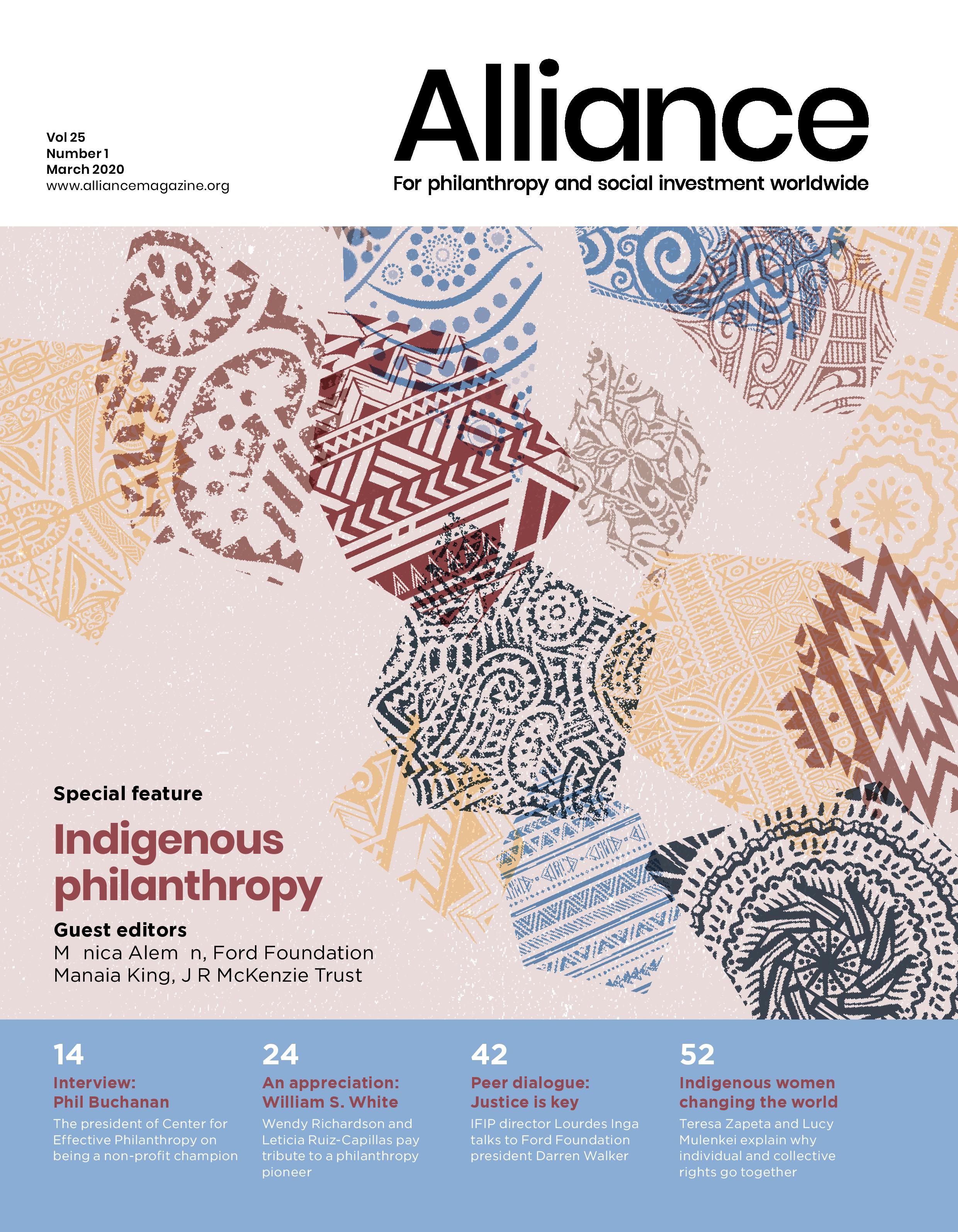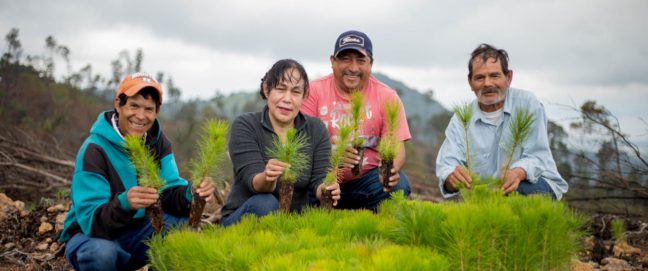Listening to Indigenous women activists will move philanthropy closer to achieving meaningful change, writes Nicky McIntyre of Foundation for a Just Society
When Teresa Zapeta and Lucy Mulenkei affirm that ‘we are not first women and then Indigenous or vice versa, we are all one, individual or collective’, I feel an immediate resonance as a feminist. While their analysis is rooted in specific Indigenous approaches, it is a way of thinking that will be familiar – and compelling – to anyone who takes an intersectional feminist view. Intersectional feminism, too, tells us that gender is inextricable from other aspects of identity, and that all struggles for justice are connected. This insight is at the core of Indigenous women activists’ work and worldview, positioning the rights of women within a broader strategy of strengthening entire communities. For funders like Foundation for a Just Society (FJS) who seek to support Indigenous women, understanding this approach is critical.
As a feminist funder, we believe that when people who experience the deepest forms of oppression actively represent their own interests, the solutions are more effective and progress is more enduring.
With an integrated view of individual and collective rights, Indigenous women’s organisations are fighting for individual women’s and girls’ rights while strengthening the collective voice of their communities. This means they are not going to leave any part of their community, or the environment, behind. Indigenous women bring an intersectional analysis and a holistic approach to some of the most pressing challenges of our time, from climate justice to land rights to ending violence and moving toward economic justice. Yet they have not had resources to advance their own solutions.
So how do we bridge the gap between philanthropy and Indigenous women’s activism? I come to the question humbly, recognising that FJS, where I am the CEO, is only just starting to learn how to be a real ally to Indigenous women’s movements.
As a feminist funder, we believe that when people who experience the deepest forms of oppression actively represent their own interests, the solutions are more effective and progress is more enduring. Indigenous women have lived at the intersection of multiple systems of oppression for generations, and they have long organised for more just societies and a sustainable world.
In 2018, we committed to increasing our funding to organisations led by Indigenous women. We started with a grant to the International Indigenous Women’s Forum (FIMI). FIMI’s AYNI Fund, which is staffed by Indigenous activists, is a mechanism through which they support – with small to medium grants – grassroots Indigenous women-led initiatives across the globe.
As we build out our grantmaking to Indigenous women’s organisations across all of our regional portfolios and in our global portfolio, we are aware of how much we have to learn. So we are doing a lot of listening.
We hear Indigenous women asking for a paradigm shift from vertical, aid-based philanthropy, to reciprocal philanthropy, where skills and resources are shared horizontally.
If we want to transform the world, we need to heed the call for transformative approaches to philanthropy, approaches which are based on trust, justice and reciprocity.
We hear Indigenous women recommending that funds be established with structures through which Indigenous women can represent themselves rather than relying on well-resourced organisations to represent them.
We hear that philanthropic approaches to supporting Indigenous women should not perpetuate colonial power dynamics.
If we want to transform the world, we need to heed the call for transformative approaches to philanthropy, approaches which are based on trust, justice and reciprocity. We are being asked to put resources in the hands of Indigenous women-led organisations and to support their decision-making about how best to use the resources.
At FJS, we are at the very beginning of our journey of learning how to be genuine allies and true supporters of Indigenous women’s work to transform our world. We invite other funders to join us in recognising – and supporting – the leadership, visions and strategies of Indigenous women working on multiple fronts for a just, sustainable world for us all.
Nicky McIntyre is chief executive of Foundation for a Just Society.
Email nmcintyre@fjs.org
Twitter @nickymcintyre
The author wishes to thank Maitri Morarji, director of programmes, and Mónica Enríquez-Enríquez, programme officer at the Foundation for a Just Society, for their invaluable contributions to this article.



Comments (0)
Thanks for sharing.